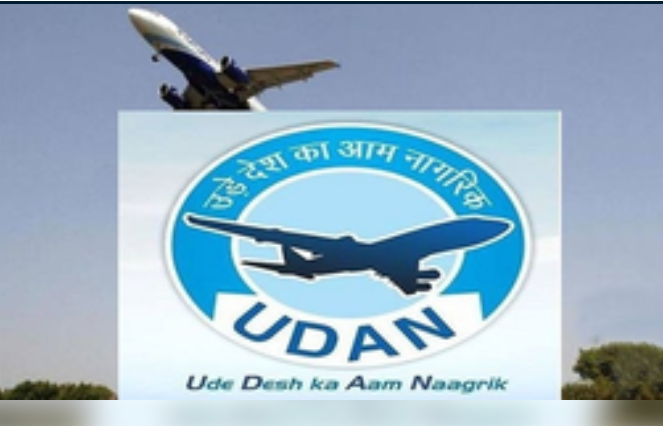Business
Extension of ‘Udan’ scheme to further improve unserved air routes in India

New Delhi, Oct 22
The extension of regional air connectivity scheme called ‘Udan’ for 10 more years by the government will further improve unserved air routes in underserved regions of the country and fulfill the aspirations of the common citizens.
The ‘UDAN’ scheme, which just completed 8 years, has led to the birth and growth of regional airlines, generation of jobs and contribution to tourism.
The ‘UDAN’ scheme has revolutionized the air travel connecting the remote parts of India to global destinations. Under the scheme, 601 routes and 86 airports are operationalised, and 1.44 crore passengers till now have been benefitted from the scheme, according to Civil Aviation Minister Ram Mohan Naidu.
The first RCS-UDAN flight was inaugurated by Prime Minister Narendra Modi on April 27, 2017, connecting Shimla to Delhi. The scheme focuses on improving unserved air routes in underserved regions of the country and fulfilling the aspirations of the common citizens.
The RCS-UDAN is contributing to the growth of the civil aviation industry as many new and successful airlines have come up in the last seven years.
The scheme has helped airline operators to start up and develop a sustainable business model. Additionally, it’s providing opportunities to small regional airlines Flybig, Star Air, IndiaOne Air and Fly91 to scale up their businesses and their successful run is evidence of the fact that the scheme is creating an amiable ecosystem conducive to airline business.
The scheme’s incremental expansion has generated an escalating demand for new aircraft, concurrently broadening the spectrum of aircraft deployed.
This augmentation encompasses a comprehensive range of aircraft and encompasses helicopters, seaplanes, 3-seat propeller planes, and jet planes.
The heightened demand for aircraft is substantiated by Indian carriers’ orders, which exceed 1,000 aircraft slated for delivery over the next 10-15 years, representing a significant augmentation of India’s existing fleet, which currently comprises approximately 800 planes operated by various airlines, according to the government.
RCS-UDAN is not solely dedicated to offering last-mile connectivity to tier 2 and 3 cities but also stands as a prominent contributor to the burgeoning tourism sector.
UDAN 3.0 introduced tourism routes connecting several destinations in the northeast region, while UDAN 5.1 is dedicated to expanding helicopter services in hilly regions to stimulate tourism, hospitality, and local economic growth.



































